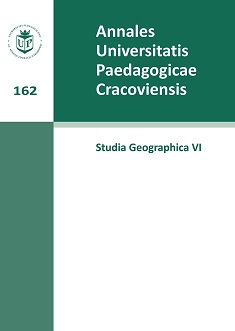Proposals for the implementation of global development education for children in primary schools
Keywords:
Czech republic, global development education, Namibia, primary schoolAbstract
This paper initially deals with the origins of the idea of global education. It points to the multitude of internationally existing concepts and business terms of global education which makes it difficult to implement the global dimension into real-life education. This “international” multitude is, as a result, obvious in the Czech terminology of global development education (GRV in the Czech text) where it originates as particular authors followed one or the other concept of global education. The objective of this paper is not to discuss the correctness or ambiguities in particular conceptions but to find essential contact points in relevant references and thus to offer a determinate picture regarded as GRV. Thus the paper firstly describes the interrelation of often confused concepts of global education and development education. Although it is obvious that the global education is superordinate to development education, many interested parties did not fully understood the international points of view and did not expose the meanings of particular terms. This too was the reason that in the Czech National Strategy GRV 2011-2015, the GRV was coined as a specific term. GRV is then a kind of happy medium between global education and development education. Secondly, the main topics and principles of GRV originating in the National Strategy of Development Education 2011-2015 (based on the British curriculum) are discussed along with their possible modifications and more exact definitions. The article also focuses on a “global development of an educated pupil.” The main educational objectives of GRV are listed and the importance of their differentiation by the age groups of the pupils. In the conclusion, the paper provides samples of topics for GRV of primary school children, the topic being Namibia, the African country.References
Bourn, D. (2008a). Development Education Debates and Dialogue. London: University of London, Institute of Education, 1–14.
Bourn, D. (2008b). Education for sustainable development and global citizenship. Theory and Research in Education. London: University of London, 193–206.
Carvalho da Silva, M. (2010). Global education guidelines: Concepts and Methodologies on Global Education for Educators and Policy Makers. Lisbon: North-South Centre of the Council of Europe, 87.
Curiculum Corporation. (2008). Global perspectives: A framework for global education in Australian Schools, 34. URL: http://www.asiaeducation.edu.au/verve/_resources/global_perspectives_statement.pdf, dostupné: 10.10.2013
Education for global citizenship. A guide for schools. (2006). Oxfam. Oxford: Development Education UK, 12. URL: http://www.oxfam.org.uk/~/media/Files/Education/Global%20Citizenship/education_for_global_citizenship_a_guide_for_schools.ashx, dostupné 10.10.2013.
Hicks, D. (2003). Thirty Years of Global Education: a reminder of key principles and precedents. London: Educational review, Carfax publishing, 265–275.
Hicks, D. (2008). Ways of Seeing: The origins of global education in the UK, Backround paper for: UK ITE Network Inaugural Conference on Education for Sustainable Development/Global Citizenship. London, 18.
Kol. (2012). Millenium Development Goals Report. New York: United Nations, 72. URL: http://mdgs.un.org/unsd/mdg/Resources/Static/Products/Progress2012/English2012.pdf, dostupné 10.4.2013.
Mansilla, V.B., Jackson, A. (2011). Educating for Global competence: Preparing Our Youth to Engage the World. Council of Chief State School Officer’s EdSteps Initiative and Asia Society Partnership for Global Learning, 136. URL: http://asiasociety.org/files/book-globalcompetence.pdf, dostupné 10.9.2013.
Nádvorník, O., Volfová, A. (2004). Společný svět. Příručka globálního rozvojového vzdělávání, Člověk v tísni společnost při ČT, o.p.s. Praha, 32.5.
Národní strategie globálního rozvojového vzdělávání pro období 2011–2015. (2011). Praha: Ministerstvo zahraničních věcí České republiky, 28.
Návojský, A., Zajac, L. (2006). Panáčik proti chudobe. Metodicko-pedagogické centrum v Trenčíně. Trenčín, 69.
North-South Centre. (2005). Programme for Strengthening Global Development Education for the Czech Republic, Hungary, Poland and Slovakia. North-South Centre of the Council of Europe and Ministry of Foreing Affairs of the Netherlands, 51, URL: http://www.coe.int/t/dg4/nscentre/ge/V4_Final_report_17-10-05.pdf, dostupné 10.9.2013.
O`Loughlin, E., Wegimont, L. (2008). Quality in Global Education: An Overview of Evaluation Policy and Practice. Amsterdam: Global Education Network Europe – GENE, 52.
Pána, L., Pospíšilová, K. (2012). Globální souvislosti, problémy a výchova. České Budějovice: Vysoká škola evropských a regionálních studií, 148.
Pike, G., Selby, D. (1994). Globální výchova. Praha: Grada, 322.
Pike, G., Selby, D. (2000). Cvičení a hry pro globální výchovu 1. Praha: Portál, 35.
Tožička, T. (2009). Příliš vzdálené cíle. Rozvojové cíle tisíciletí – manuál globálního vzdělávání. Praha: Educon, 52.
Tožička, T. (2011). Občanská odpovědnost ve světle globální chudoby. In. Tomáš Tožička & Milan Smrž (eds.), Občanská odpovědnost ve světle globální chudoby. Separát: Energie pro všechny do roku 2030. Praha: Educon, 86.
Downloads
Published
Issue
Section
License
The submission of a paper to be published is synonymous with an agreement to transfer the copyright free of charge from the author to the publisher. The author also agrees to permit the publisher to publish the paper in printed form, open access online form, digital library form and other digital platforms with which the publisher has or will have a publishing agreement. Furthermore, the author agrees to not limit the number of copies that may be printed or issued by the publisher. In the case of co-authored papers, it is assumed that the corresponding author is authorized to represent the remaining co-authors in this respect. Authors are requested to sign a copyright declaration.

